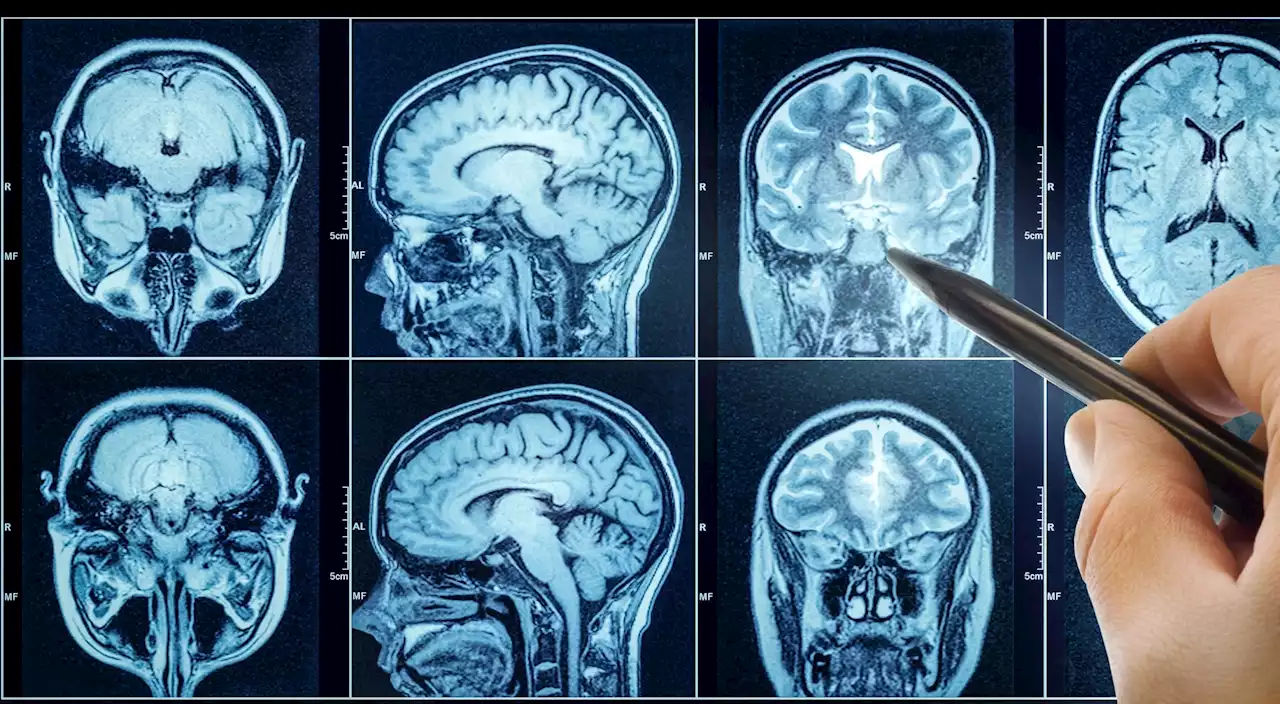A machine-learning approach for monitoring the progression of Alzheimer's disease medrxivpreprint alzheimers disease AD machinelearning ML artificialintelligence AI health
By Neha MathurJul 19 2023Reviewed by Benedette Cuffari, M.Sc. In a recent article posted to the medRxiv* preprint server, researchers evaluate the predictive value of a multidimensional machine learning approach for monitoring the progression of Alzheimer’s disease .
Background AD patients often experience significant changes in their personality as the disease progresses. These include increased neuroticism, as well as reduced agreeableness, extraversion, conscientiousness, and openness. About the study To train the ML approach for the current study, the researchers utilized voxel-wise resting state functional magnetic resonance imaging , the ‘Big Five’ personality traits, depression, anxiety, apolipoprotein E genotype, and CSF biomarkers.
Study findings All feature sets demonstrated DA significantly above chance, with the highest DA observed for four feature sets including personality extended, CSF consisting of tTau, pTau, and Aβ42/40 ratio, ApoE, as well as depression and anxiety scores. Notably, mPerAF performed above chance; however, its performance did not vary from the base model. Most previous DMN studies focused on functional connectivity, rather than voxel-wise amplitude measures, such as mPerAF; therefore, the predictive ability of resting-state fMRI of the DMN for AD led to inconsistent findings. The current study approach resembled an automated diagnostic process and did not make dichotomous decisions across groups.
Conclusions None of the combinations of the evaluated feature sets consistently attained superior class accuracies for all participant groups. CSF biomarkers most effectively classified participants with mild AD, whereas depression and anxiety scores combined effectively classified healthy controls, thus reaffirming that late-life depression is a prodrome of AD.
Belgique Dernières Nouvelles, Belgique Actualités
Similar News:Vous pouvez également lire des articles d'actualité similaires à celui-ci que nous avons collectés auprès d'autres sources d'information.
 Researchers demonstrate targeted epigenome editing in the promoter region of several genes using sgRNA/dCas9 complexesResearchers demonstrate targeted epigenome editing in the promoter region of several genes using sgRNA/dCas9 complexes researchsquare Uni_Stuttgart CRISPR geneediting genetics epigenome epigenetics
Researchers demonstrate targeted epigenome editing in the promoter region of several genes using sgRNA/dCas9 complexesResearchers demonstrate targeted epigenome editing in the promoter region of several genes using sgRNA/dCas9 complexes researchsquare Uni_Stuttgart CRISPR geneediting genetics epigenome epigenetics
Lire la suite »
 Breakthrough Alzheimer's drug could be available on NHS by 2025, experts sayDonanemab was found to slow 'clinical decline' by up to 35 per cent, meaning that people with the disease could still go about performing day-to-day tasks, as charities urged its makers to submit the drug for regulatory review
Breakthrough Alzheimer's drug could be available on NHS by 2025, experts sayDonanemab was found to slow 'clinical decline' by up to 35 per cent, meaning that people with the disease could still go about performing day-to-day tasks, as charities urged its makers to submit the drug for regulatory review
Lire la suite »
 Hope for Alzheimer’s patients as new drug donanemab slows cognitive decline 'by a third'A new drug has been hailed as a 'turning point in the fight against Alzheimer's' after it was found to slow the progression of the disease by up to a third.
Hope for Alzheimer’s patients as new drug donanemab slows cognitive decline 'by a third'A new drug has been hailed as a 'turning point in the fight against Alzheimer's' after it was found to slow the progression of the disease by up to a third.
Lire la suite »
 New drug found to slow Alzheimer’s hailed as turning point'Just as we’ve seen a transformation in cancer treatment in recent decades, we’re really hopeful we’re on the same path for dementia.'
New drug found to slow Alzheimer’s hailed as turning point'Just as we’ve seen a transformation in cancer treatment in recent decades, we’re really hopeful we’re on the same path for dementia.'
Lire la suite »
 A new treatment for Alzheimer’s offers hope—but raises questions, tooA drug called donanemab has been hailed as a “breakthrough” and “turning-point”. That is overblown. But it does mark steady—and welcome—progress
A new treatment for Alzheimer’s offers hope—but raises questions, tooA drug called donanemab has been hailed as a “breakthrough” and “turning-point”. That is overblown. But it does mark steady—and welcome—progress
Lire la suite »
 Unraveling the consequences: COVID-19's devastating effect on the TB care cascadeUnraveling the consequences: COVID-19's devastating effect on the TB care cascade medrxivpreprint StellenboschUni covid COVID19 SARSCoV2 TB tuberculosis healthequity LMICs
Unraveling the consequences: COVID-19's devastating effect on the TB care cascadeUnraveling the consequences: COVID-19's devastating effect on the TB care cascade medrxivpreprint StellenboschUni covid COVID19 SARSCoV2 TB tuberculosis healthequity LMICs
Lire la suite »
